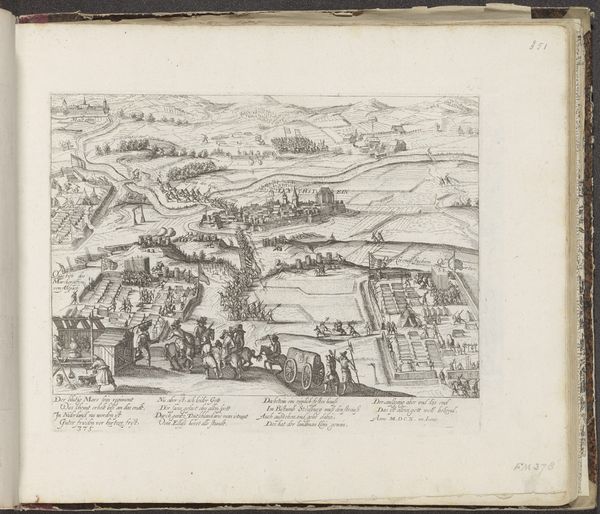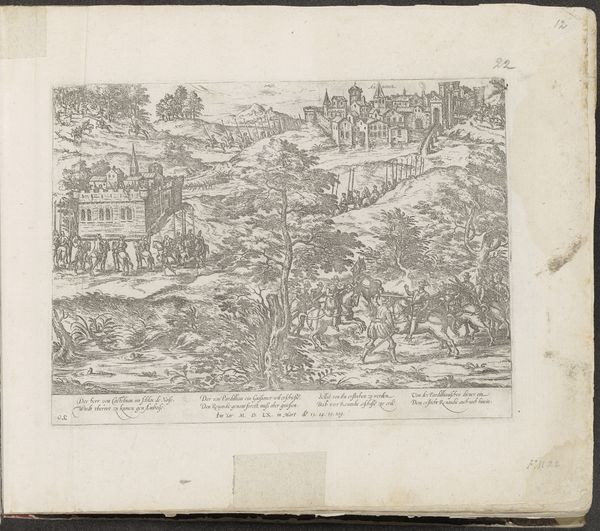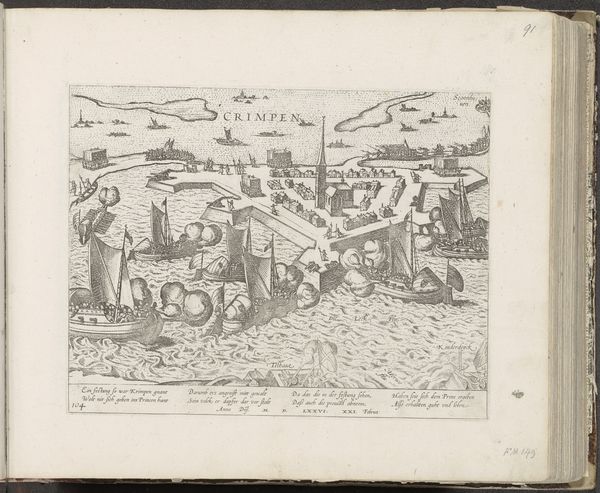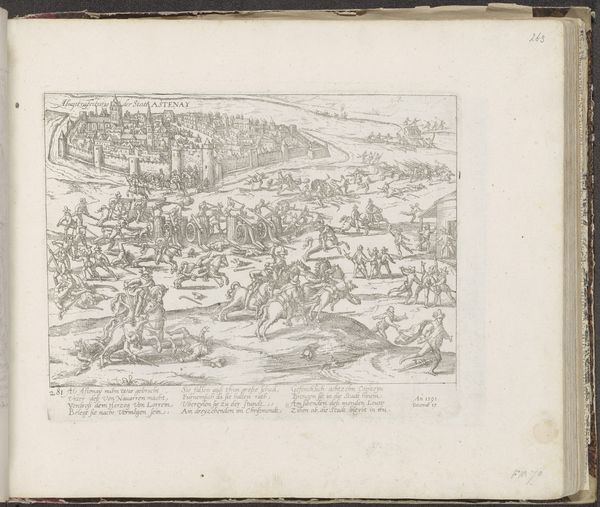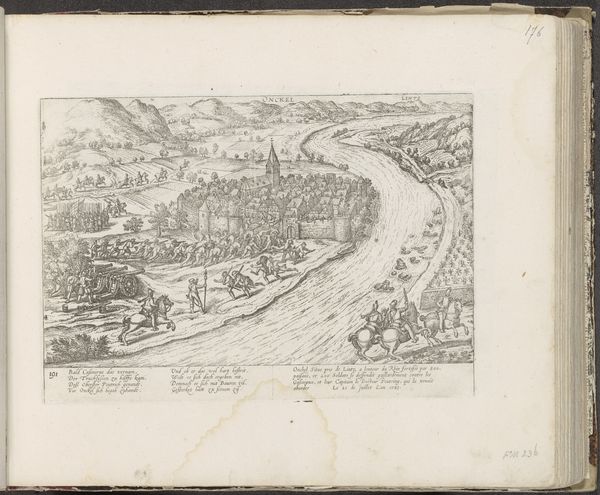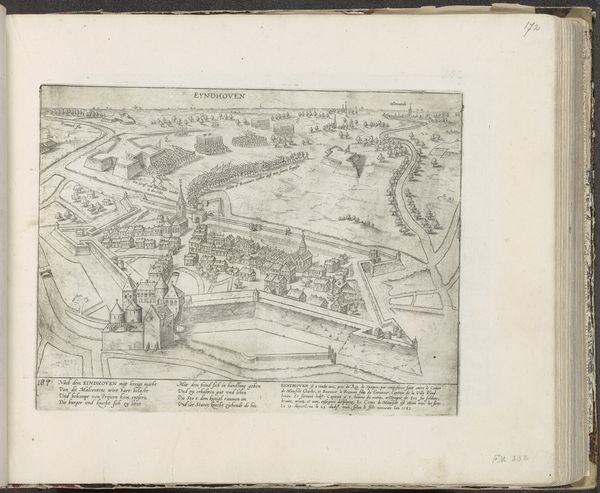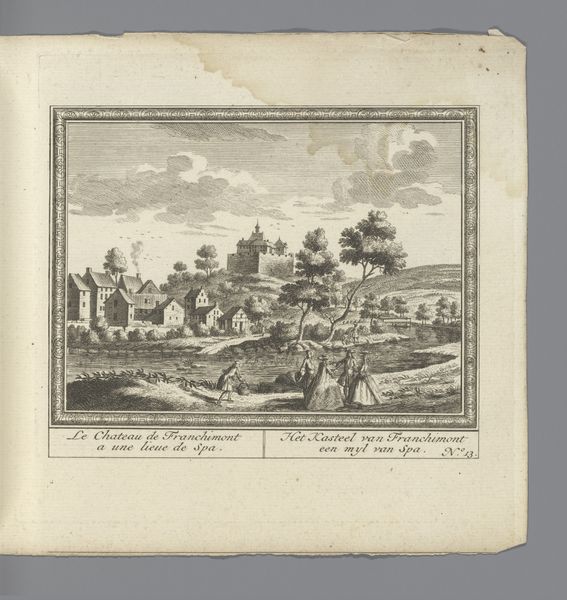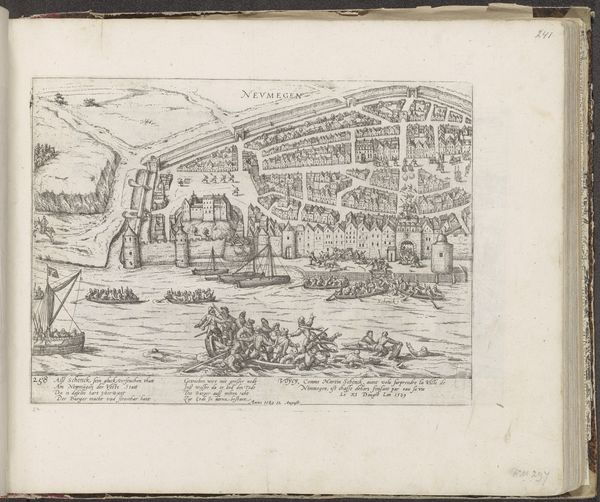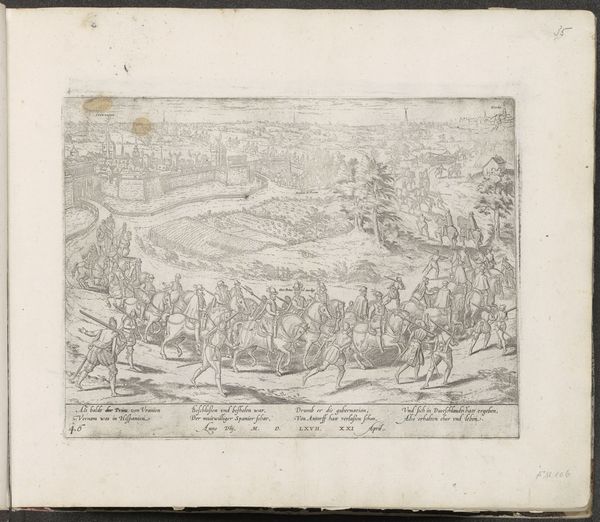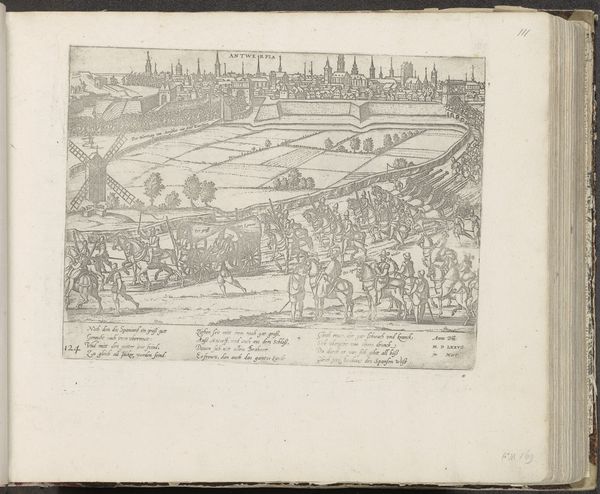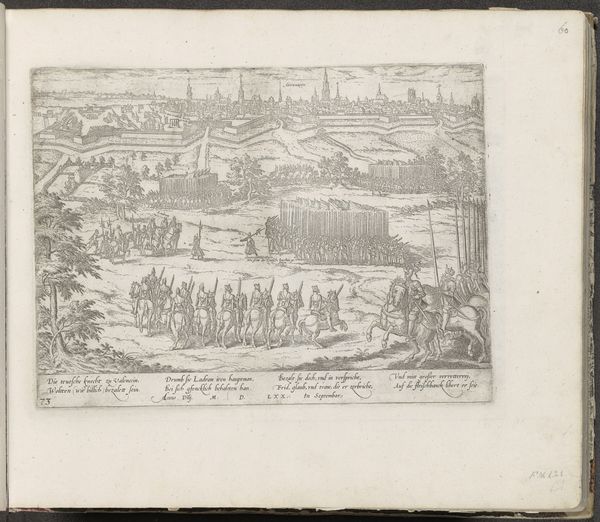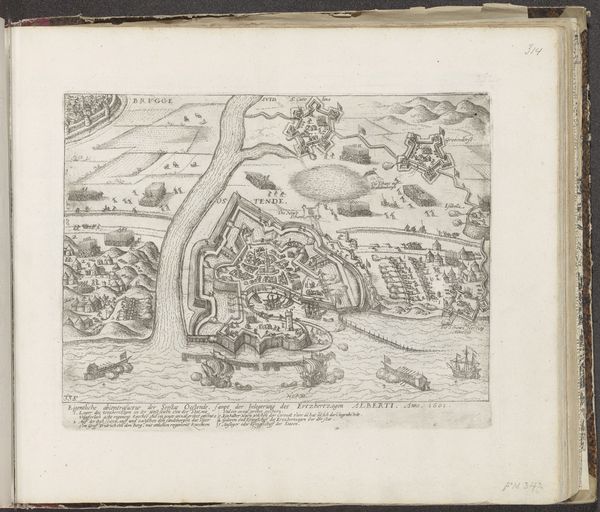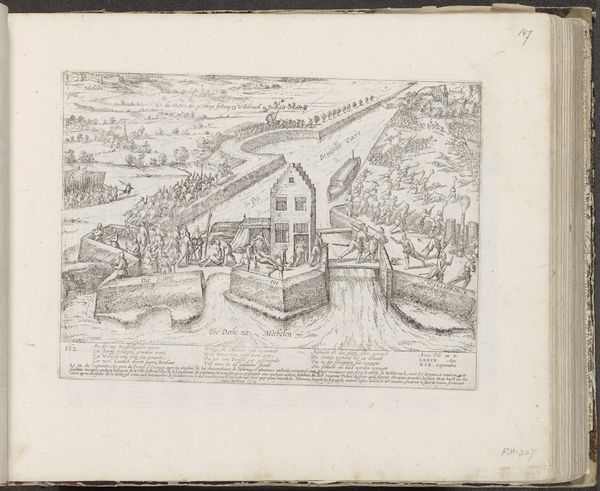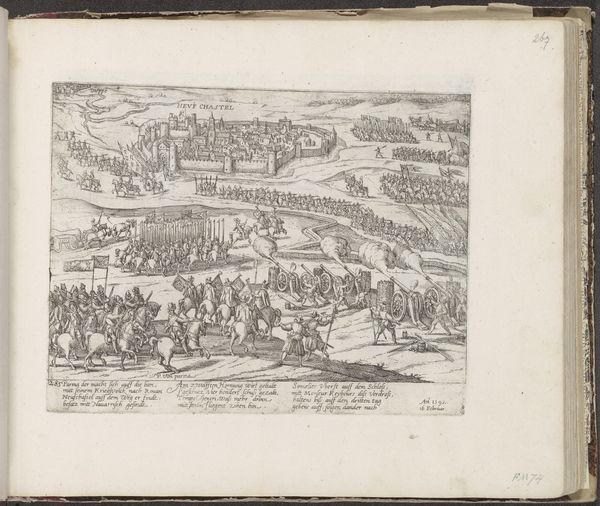
Inname van Lochem door Spinola en de meelwagens in zijn leger, 1606 1606 - 1608
0:00
0:00
franshogenberg
Rijksmuseum
print, etching, paper, ink, pen, engraving
#
aged paper
#
toned paper
#
dutch-golden-age
# print
#
pen sketch
#
etching
#
sketch book
#
landscape
#
paper
#
personal sketchbook
#
ink
#
pen-ink sketch
#
pen work
#
sketchbook drawing
#
pen
#
history-painting
#
storyboard and sketchbook work
#
sketchbook art
#
engraving
Dimensions: height 233 mm, width 314 mm
Copyright: Rijks Museum: Open Domain
This engraving by Frans Hogenberg depicts the siege of Lochem in 1606, showcasing Spinola's army with its distinctive meelwagens, or flour wagons. These wagons symbolize not just sustenance but also the strategic logistics of war. Consider how the wagon—a motif of transport and provision—echoes across time, from ancient Roman supply trains to modern military convoys. The wheel, prominently featured, is an ancient symbol. It suggests cyclical progression, a relentless march forward, but here also hints at the siege's eventual circular return to the status quo. The act of besieging, with its implications of encirclement, brings to mind the ouroboros, the snake eating its tail, symbolizing both destruction and renewal. In the collective psyche, such imagery touches on primal fears of starvation and containment. The wagons and wheels, therefore, are more than mere carriers of flour; they are embodiments of a continuous cycle of conflict, a testament to the enduring human drama of survival and domination.
Comments
No comments
Be the first to comment and join the conversation on the ultimate creative platform.
